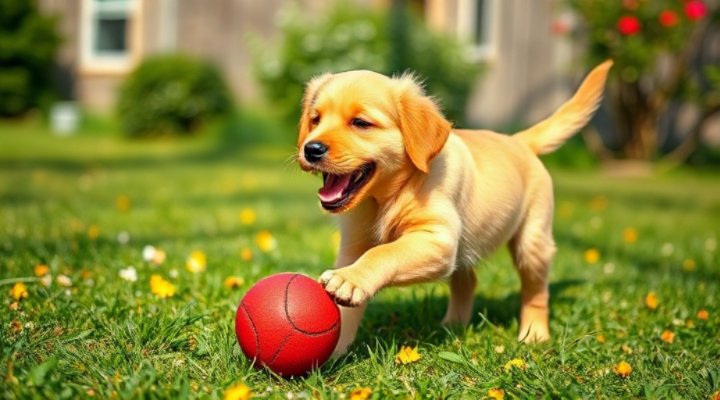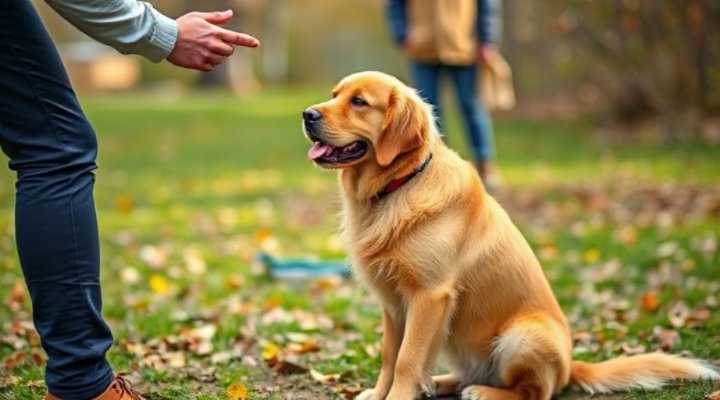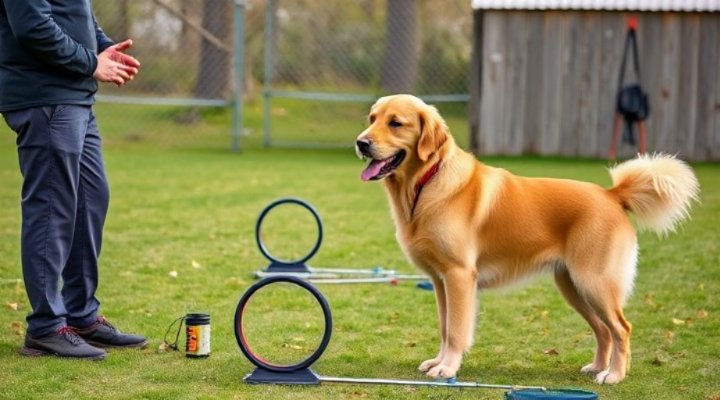Golden Retriever training is an incredibly rewarding experience that strengthens the bond between you and your furry friend. These intelligent, eager-to-please dogs respond exceptionally well to positive reinforcement methods. Whether you’re starting with a playful puppy or working with an adult dog, understanding their developmental stages is key to successful training.

Golden Retriever Puppy Training Fundamentals
When you first bring home your Golden Retriever puppy, the training journey begins immediately. Puppies have short attention spans, so keep sessions brief (5-10 minutes) and frequent (3-5 times daily). Start with essential commands like ‘sit’, ‘stay’, and ‘come’. Remember, consistency is crucial – use the same words and gestures each time.
For potty training, establish a regular schedule. Take your puppy out first thing in the morning, after meals, after naps, and before bedtime. When accidents happen (and they will!), clean thoroughly to remove odors that might attract repeat offenses. Our article on house breaking a puppy offers additional helpful tips.

Socialization: The Golden Opportunity
Between 3-14 weeks is the critical socialization period for Golden Retrievers. Expose your puppy to various people, animals, environments, and sounds in a positive, controlled manner. This prevents fearfulness and aggression later in life. The American Veterinary Medical Association emphasizes the importance of proper socialization for all dogs.
Enroll in puppy classes once vaccinations are complete. These provide structured socialization and basic obedience in a safe environment. Check out our guide on puppy training classes to find the right program.
Dealing with Puppy Biting
Golden Retriever puppies are mouthy – it’s how they explore the world. When those needle-sharp teeth clamp down, immediately redirect to appropriate chew toys. If biting persists, stand up and withdraw attention briefly. This teaches that biting ends fun interactions.

Adolescent Golden Retriever Training Challenges
Around 6-18 months, your Golden will enter adolescence. This challenging phase tests boundaries as hormones surge. Increase exercise to burn excess energy and maintain consistent rules. If you notice regression in training, return to basics with patience.
This is an ideal time to introduce more advanced commands and activities. Golden Retrievers excel at:
- Retrieving games
- Agility training
- Therapy work
- Service dog tasks
Our article on therapy dog training provides valuable insights if this path interests you.
Adult Golden Retriever Training Maintenance
With consistent training, your Golden Retriever will mature into a wonderful companion. However, training never truly ends. Regular practice sessions maintain skills and provide mental stimulation. The American Kennel Club recommends ongoing training throughout a dog’s life.

Addressing Common Behavior Issues
Even well-trained Goldens may develop unwanted behaviors. Jumping, excessive barking, and counter surfing are common. Instead of punishment, redirect to appropriate behaviors and reward compliance. For example, teach ‘off’ for jumping and reward four paws on the floor.
If you’re struggling with specific issues, our guide on positive reinforcement training offers science-based solutions.

Golden Retriever Training for Senior Dogs
As your Golden ages, adapt training to their changing needs. Senior dogs may develop arthritis or cognitive decline. Keep sessions shorter and focus on maintaining basic obedience and mental engagement. Scent work and gentle retrieves provide excellent low-impact stimulation.
Remember, every Golden Retriever is unique. Tailor your approach to your dog’s personality, energy level, and learning style. With patience, consistency, and plenty of love, you’ll develop an unbreakable bond with your golden companion.
Related Keywords: Golden Retriever obedience, dog training tips, positive reinforcement dog training, puppy socialization, advanced dog commands, therapy dog training, senior dog care
